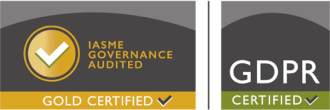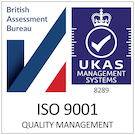To keep your home WiFi secure you need to configure it correctly. Plug-in-and-go won’t cut it.
Through an unsecured network, financial transactions can be read as clear as text.
Around 50% of the UK population work remotely at least 60% of the time. If you have home or hybrid workers in your team, be sure to share this post with them.
7 simple tips to keep your home WiFi secure
Your home WiFi network supports every device in your home; PCs, laptops, smartphones, tablets and even smart speakers. If you don’t keep your home WiFi secure, you’re leaving the door open to cyber criminals, giving them access to your bank accounts, credit cards, personal data, and even your business network.
How to tell if your home WiFi has been hacked.
#1 Give your home WiFi a name
Your router will already have a default name (SSID or Service Set Identifier). Typically, this will be the same name as the manufacturer which means all routers of that brand will have the same blanket SSID. Updating this not only avoids neighbouring houses connecting to the wrong router in error but also shows any potential attackers that you pay attention to your WiFi set-up and security, making you less of an appealing target.
Tip: Don’t use anything too personal to you or your family.
#2 Make your home WiFi password a good one
Just like with the SSID, most routers come with a pre-set default password. This is likely to be a commonly used password, and perhaps default for all routers from the same manufacturer – it could take a good hacker only moments to figure it out and gain access. You should set a strong password as a matter of urgency – aim for 20 characters and include numbers, letters and symbols to make it as difficult as possible for hackers to guess.
Tip: Using numbers to represent letters can make for a strong yet memorable password.
#3 Enable your home WiFi network encryption
It’s likely your WiFi router has an encryption feature – most do – but by default, it is likely to be switched off. Enabling your encryption as soon as possible is one of the most important steps to securing your WiFi network. It acts as an additional layer to your password security and means an attacker needs to know your encryption type as well as password before they can even try to access your network.
Tip: The differing types of encryption vary in their effectiveness. WEP is weak; if you are using this you should consider changing to WPA2 which currently offers the best protection for home WiFi networks.
#4 Keep shtum
As mentioned, we strongly advise you to change your router name but you could also opt for disabling your network name from broadcasting to the general public. This will mean when anyone searches for a wireless network in your area, yours won’t even appear, reducing your chances of becoming a cyber attack victim significantly.
Tip: Network name broadcasting is useful for businesses, hotels, restaurants, etc. offering a public WiFi service, but not necessary for a personal wireless network.
#5 Are you up to date?
Just like any software, your router’s firmware can become outdated; flaws that may be causing major vulnerabilities can become apparent to the manufacturer which will prompt them to release an update containing fixes. All routers are different, but you will usually be able to source any available updates from the download page on the manufacturer’s website.
Tip: Make an annual note in your diary to check for available updates for your home WiFi router.
#6 Be sure to have a good firewall
A good firewall is essential. Like a doorman to your network, it will watch over your systems for any attempts of malicious access. Internet Service Provider (ISP) supplied routers tend not to have any in-built firewall protection but many off-the-shelf routers do. However, they are usually supplied with the firewall disabled so be sure to enable it.
Tip: If your router doesn’t have a built-in firewall, you should install a good firewall solution on your network.
#7 Don’t overlook the admin password
In addition to the user password for your WiFi connection, there is an admin password used to access the router itself which many people overlook. If this is left as default, it can pose a huge security risk.
Tip: From your router admin dashboard you can view and change the admin password – make it a priority!
Cyber security is our speciality
At Jupiter IT, we’re committed to raising awareness of cyber crime. We hold the prestigious Cyber Essential Plus certification and, as experts in this standard, can help you become Cyber Essential accredited too. You can read more about the benefits of being Cyber Essential certified and how we can help you get there.
We also provide our clients with free, content-rich, cyber security training to benefit them in the office and at home – give us a call today to arrange your free training session.









